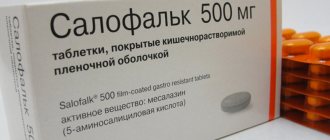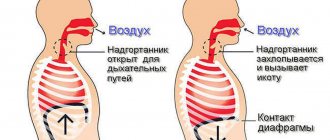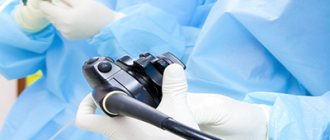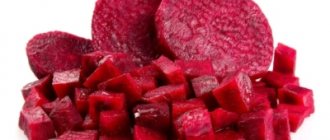For most people, medicine is a complex and unknown science, so sometimes it can be difficult to independently choose a drug that will help solve a problem with the intestines.
In fact, medical science involves facts and logic that are related to the human body. Two important areas are used in the treatment of various types of diseases - eliminating symptoms and influencing the underlying cause. In order to choose the right medicine for the intestines, you should initially determine what exactly is bothering the patient and identify the factor of discomfort. Based on the data obtained, you can choose the right course of treatment.
Symptoms and causes of intestinal disease
The intestine belongs to the digestive system and performs a number of significant functions:
- breaks down products;
- helps absorb nutrients into the blood;
- increases immune system protection;
- removes waste and toxins.
With intestinal disease, the work cycle of certain functions is disrupted, so a specialist can very accurately indicate the nature of the pathology. The most common signs of the disease include:
- stomach ache. The functioning of the intestines at the proper level does not cause any discomfort;
- Pain in the navel area indicates a disease of the small intestine. The pain is most often aching or pulling;
- constipation. If the symptom is not accompanied by other discomfort, the cause of the phenomenon can be considered anything, for example, taking medications, stress, poor diet;
- diarrhea. May be caused by an inflammatory process associated with the intestines or stomach.
Changes may occur in other systems and organs. A decrease in the level of absorption of important nutrients has a negative impact on well-being and skin condition. Weight gain and menstrual irregularities may also occur.
Treating symptoms without eliminating the causes of discomfort will be ineffective. Diseases that disrupt intestinal function include:
- Crohn's disease;
- enteritis;
- colitis;
- dysbiosis.
The disease can occur in acute or chronic form; the severity and severity of pain will depend on the severity of the disease.
Mental comfort
Many digestive ailments are directly or indirectly related to the psycho-emotional sphere. Constant stress, prolonged mental stress, acute psychotraumatic situations (death or illness of loved ones, divorce, job loss, conflicts, etc.), deep internal contradictions can result in gastroenterological diseases: functional dyspepsia, irritable bowel syndrome, peptic ulcer, biliary dyskinesia, etc. .
Moreover, until these factors are eliminated or the professional work of a psychotherapist (sometimes with a course of special medications), it is not possible to cope with diseases with traditional medicines. Patients can wander around doctors’ offices for years, tormenting themselves, those around them, and the doctors. Moreover, some patients are initially predisposed to diseases of the digestive system. For example, many ulcer sufferers have a choleric temperament from a young age.
Intestinal prophylaxis drugs
In order to prevent intestines, gastroenterologists recommend taking medications for the health of the digestive system and the prevention of diseases, which include natural ingredients.
Inulin forte
Crushed Jerusalem artichoke root is used as an additive. The substance helps improve appetite, normalize digestion, and increase the number of beneficial microorganisms in the stomach.
You need to take one tablet three times a day half an hour before meals. The duration of treatment should not exceed one month.
Eubicore
The powder contains yeast cultures and fiber. When they enter the stomach, they begin to multiply and destroy harmful bacteria. The medicine is usually taken for heartburn and stool disorders.
Dissolve the contents of the package in 100 ml of warm water. Use morning and evening before meals for two weeks.
Antibiotic Summed
The antibacterial substance prevents the development of diseases of the gastrointestinal tract.
Summed is taken for stomach and duodenal ulcers. The antibiotic is taken once a day, the dosage is 1g. The course of treatment lasts three days.
Bisacodyl
Bisacodyl is a laxative that helps clear the stomach.
State Autonomous Institution "Shilkinskaya Central District Hospital"
The problem of disorders and diseases of the gastrointestinal tract is very acute in the world and therefore, its prevention is the cornerstone that helps you cope with possible complications when its work is disrupted in the form of gastritis, duodenitis, pancreatitis, enteritis, hepato-cholecystitis , spastic colitis, hemorrhoids and other troubles.
As well as constipation, flatulence, dysbacteriosis and other stool disorders that plague people with disorders of the gastrointestinal tract.
If you do not prevent gastrointestinal diseases, then tomorrow you can easily find yourself in a hospital bed, since a failure in this system also leads to dysfunction of other organs.
Poor ecology, products with foreign substances for the body in the form of antioxidants, thickeners, preservatives, flavorings, a dynamic rhythm of life, stress and water containing the entire periodic table can ruin the life of any person!
How to prevent gastrointestinal diseases?
Compliance with certain rules and technologies will give you a lot of joy and good mood!
The human digestive system is a tube with different diameters along its entire length. The beginning of the tube is the mouth. Next comes the esophagus, through which the food crushed in the mouth moves. The most expanded part of the tube is the stomach. It then narrows into the small intestine, the longest part of the digestive system. Behind it is a new extension - the large intestine, which ends in the anus.
In the oral cavity, food is crushed and a food bolus is formed; in the stomach - “processing” of it with gastric juice; in the small intestine - breakdown with the help of enzymes of the body itself and enzymes found in food, as well as absorption of digested food; in the large intestine - further digestion, absorption, formation of feces and their evacuation.
The digestive system also includes the liver and pancreas. Indirectly related to digestion are blood as a transport system for nutrients, connective tissue and interstitial fluid, through which further delivery of nutrients to cells is carried out.
“Watch your mouth,” wrote L. N. Tolstoy . — Diseases enter through it. Act in such a way that you want to eat when you get up from lunch.”
If you want to be healthy, follow simple and effective rules
1. Observe the rules of personal hygiene.
At least for starters, wash your hands before eating and do not grab food after you have just recently been driving a car, riding in public transport, or doing paperwork at work.
Basic rules will give you a lot of positive emotions!
2. Do not drink, under any circumstances, untested raw and unboiled water.
We advise you to purchase a MAG-Bio device, which 100% kills harmful flora, ionizes water with gold, silver, copper ions, and structures the water. And this is only part of its advantages. 7 minutes and your water has a strong antibacterial effect!
3. Fight flies and mosquitoes at home during the warm season, as they are carriers of all kinds of infection and can easily cause any intestinal infection
4. If you are preparing food, then you must strictly follow the rule: never mix the boards on which raw meat (and fish) are cut and cooked meat (and fish). Label them so that you can always easily distinguish them.
5.Follow the rules of cooking.
When preparing meat and fish dishes, you need to cook them in a container with a tight-fitting lid, cook them for a long time and with the maximum addition of various seasonings that disinfect food: bay leaf (at the rate of 1 leaf per family member), onion, garlic (best put in the dish after cooking), cilantro (coriander), dill seed, cumin, cloves, any fresh herbs, including mint, lemon balm, basil, tarragon, seaweed, red and black pepper (if there are no contraindications from the gastrointestinal -intestinal tract), etc. You can put the spices in a gauze bag and throw them away at the end of cooking.
If you buy meat products or sausages for travel and hiking, as well as for the country house, it is best to buy them in vacuum packaging. Just check its tightness. Plus check the expiration date and appearance.
6. Before picking mushrooms in the warm season, find out what the radiation situation is in the area where you are vacationing, since mushrooms have the ability to accumulate radionuclides. Please note that every year in our country hundreds of people die from mushroom poisoning, because due to increased radiation, mushrooms change and become mutants. The safest thing is, after all, champignons that are grown under artificial conditions. If you really can’t resist the mushroom temptation, boil the mushrooms and bravely drain the first water, then the risk will still be reduced.
7.The issue of milk is especially important. Since there is foot-and-mouth disease in some regions of Russia, and you may not know about it, it is better to always boil milk (barrel and from a village cow) so as not to get sick with brucellosis. Since milk is poorly digestible in a fairly large number of people, it is best to ferment boiled milk with lactobacilli or dry acidophilus starter or Narine starter to obtain an exceptionally healthy lactic acid product (1 capsule per half liter of milk); as a last resort, you can ferment the milk with black bread and sour cream. Only when fermenting, remove the film from boiled milk. Do not indulge in fresh milk, as it often causes severe stomach upset. You can drink fresh milk only if the cow has been checked and it is known for sure that she did not have foot-and-mouth disease.
Despite the fact that goat's milk is extremely healthy, you need to be very careful when introducing it to children because of its high fat content. First: 2/3 boiled water, 1/3 boiled milk, then after a couple of days, half goat milk and boiled water, then after a couple of days 2/3 milk, 1/3 boiled water. You can make curdled milk from pure goat milk.
8.Follow food storage rules. This could be a refrigerator, or a cellar, for example, or a basement. Main. so that there is an acceptable temperature for storing food.
9. To prevent gastrointestinal diseases, it is best to drink green tea, which has antimicrobial properties. It’s good to combine it with St. John’s wort, mint, oregano, and chamomile.
10.Strengthening healthy intestinal microflora also helps prevent gastrointestinal diseases. Try to drink yogurt fermented with lactic acid bacteria.
Gastrointestinal tract. Prevention of the digestive system
- Drink plenty of fluids daily; from 2.5 l to 3.5 l. Water will help remove all unfavorable substances from the body.
- Try to maintain a sleep schedule. A good eight or nine hour sleep is the key to health.
- Do not drink alcohol under any circumstances! It negatively affects all digestive organs.
- Buy diuretics from time to time. Herbs will help your kidneys and liver cope with toxins.
Anatomy of the gastrointestinal tract
The esophagus, stomach and intestines are the basis of the digestive system. They need careful care, otherwise chronic diseases and cancer may appear.
Often, intestinal problems manifest themselves on the skin. Therefore, you should always monitor her appearance. The intestines play an important role in metabolism. It absorbs all nutrients and vitamins.
If its walls are clogged with toxins, then this leads to adverse consequences, such as dysbiosis, irritable bowel syndrome, changes in the color and consistency of stool, and so on.
The stomach can also have quite a few problems if left untreated. It is inextricably linked with the intestines, which means that if discomfort arises in one place, it will certainly, after a certain time, without treatment, arise in another. Therefore, you should follow these few tips to prevent such diseases:
Preventive measures for a healthy stomach
- Don't eat fast food. Fast foods worsen the condition of the stomach and destroy the favorable intestinal microflora.
- Never take strong medications on an empty stomach without consulting a doctor. They can worsen your digestion, or cause the most common disease - gastritis, accompanied by pain and discomfort in the abdomen.
- Get outdoors more often. Saturation of blood with oxygen promotes better metabolism in the body. In addition, the nervous and circulatory systems improve.
- Avoid anything fried, salty or spicy. A multicooker will help you with this.
All of this can have a detrimental effect on your digestion. Switch to healthy cooking methods: steaming, boiling, baking.
These cooking methods retain up to 99% of the vitamins in food. All these tips will help you achieve clear skin, good sleep and good health for many years!
Heartburn is one of the main and most common manifestations of gastroesophageal reflux disease (GERD).
GERD is a chronic disease characterized by impaired motor function of the upper digestive tract - the esophagus and stomach, accompanied by the development of characteristic complaints (frequent heartburn, sour belching, etc.) and clinical manifestations identified during the examination. The symptoms are based on the repeated reflux of gastric contents into the esophagus (reflux) and irritation of its inner layer - the mucous membrane - by acid and enzymes of gastric juice. Exposure to these aggressive factors can also lead to damage to the mucous membrane of the esophagus, the development of erosions and ulcers, changes in its structure (Barrett's esophagus), and adenocarcinoma of the esophagus.
The following lifestyle and nutrition recommendations will help reduce the likelihood of reflux (to prevent heartburn):
- Don't overeat! A single volume of food should be in the range of 300–500 ml.
- Meals should be fractional. You need to eat small portions 5-6 times a day. Eat slowly.
- Try not to eat fatty foods. It must be remembered that fat can be contained in food not only in “pure form”, but also in “hidden” form - it is added to ready-made dishes or used in their manufacture (cakes, pastries, pastries). Dietary fats delay gastric emptying, causing acid to reflux into the esophagus.
- Preference should be given to boiled or steamed food.
- Reduce or, better yet, stop drinking carbonated drinks and minimize the consumption of alcoholic beverages.
- Do not overuse salt and spices. Salt, as well as most spices and seasonings, strongly stimulate the production of acid and enzymes in the stomach, which can increase the length of time food remains in the stomach and lead to reflux of stomach contents into the esophagus.
- Avoid very hot or cold foods.
- Avoid afternoon naps. Taking a horizontal position after eating can contribute to the reflux of stomach contents into the esophagus. Therefore, you should try to be in an upright position (for example, sitting or walking) for at least two hours after eating. Also, during this time, it is not recommended to engage in active sports activities with bending of the torso, involving the abdominal press.
- Try to eat food no later than 2-3 hours before bedtime. Before going to bed, you can drink milk, cream, or take 1 teaspoon of powdered milk.
- Raise the head end of the bed. If heartburn occurs at night, one of the ways to prevent it is to use a special mattress or block placed under the legs of the bed at the head end. The lifting height can be small - 15 cm.
- Avoid tight belts. Don't wear tight clothes. The use of tight belts increases pressure inside the abdominal cavity and, thereby, provokes the reflux of stomach contents into the esophagus.
- Keep your weight normal. Losing weight if you are overweight can reduce the risk of reflux primarily by reducing pressure within the abdominal cavity.
- No smoking. The nicotine in tobacco products stimulates acid secretion in the stomach.
- Follow dietary recommendations. The main principle of the diet is to limit foods and dishes that stimulate gastric secretion, are irritants to the mucous membrane, linger in the stomach for a long time and are difficult to digest.
Food is prepared mainly pureed, boiled in water or steamed. Some dishes are baked without a crust.
Recommended:
- white bread made from premium flour, freshly baked or dried;
- pureed vegetarian soups, cereal soups, milk soups with noodles;
- meat dishes cooked boiled or steamed: beef, veal, young lean lamb, chicken, turkey;
- fish dishes boiled or steamed from low-fat varieties of fish, mainly river fish (pike, pike perch, perch);
- butter and refined sunflower oil added to dishes;
- milk, cream, fresh non-acidic sour cream, non-sour cottage cheese;
- porridge cooked in water or milk (oatmeal, buckwheat, semolina, rice), pasta and boiled vermicelli;
- boiled in water or steam: potatoes, carrots, beets, cauliflower, white zucchini;
- jelly, jelly, pureed compotes from sweet varieties of berries and fruits, sugar, honey, marshmallows, marshmallows;
- weak tea with milk or cream, weak cocoa and coffee with milk, sweet juices from fruits and berries, rose hip decoction.
- Excluded:
- black bread, fresh bread, puff pastry and pastry products;
- meat, fish, mushroom and strong vegetable broths, cabbage soup, okroshka, borsch;
- meat dishes from fatty meats (pork) and poultry (duck, goose), smoked meats, canned meat, fried dishes;
- fish dishes from fatty fish, salted, smoked, fried fish;
- refractory fats (pork lard, beef and lamb fat), combined fats (margarine), unrefined sunflower oil;
- high acidity dairy products;
- porridge from millet, pearl barley, corn and barley, beans;
- salted and pickled vegetables, mushrooms, tomatoes, citrus fruits, white cabbage, radish, sorrel, onions, garlic, cucumbers, peppers and other spices, peppermint;
- chocolate, fatty cakes and pastries, ice cream;
- alcohol, any carbonated drinks, strong tea, coffee.
Print Email
Prevention of dysbacteriosis and polyps
Dysbacteriosis contributes to imbalance of intestinal microflora. The syndrome occurs when medications are taken incorrectly, hormonal imbalances occur, and the consequences are caused by bad habits. The disease can be caused by an intestinal infection, surgery, depression, or pathology of the digestive system.
Preventive measures are based on:
- taking antibiotics correctly;
- the use of drugs that restore microflora, for example, Bacteriobalance or Linex;
- eliminating hypothermia, stressful and nervous situations;
- treatment of gastrointestinal pathologies, which should be timely.
Polyps are a benign type of tumor that forms on the intestinal mucosa. The disease is accompanied by bleeding, pain, and anal itching.
The tumor can appear as a result of improper nutrition,
frequent constipation, weak immune system. To prevent the formation of polyps, it is worth carrying out prevention, namely:
- undergo diagnostics of the gastrointestinal tract;
- give up alcohol and smoking;
- take vitamins;
- follow a strict diet;
- submit stool annually for immunochemical analysis.
Be careful with medications and certain medical procedures
Uncontrolled use of certain medications can lead to serious problems in the digestive tract.
Unfortunately, the availability of medical information does not always contribute to the correct behavior of patients. Some of them draw contradictory information from popular television programs and the Internet and begin treatment without the help of specialists (often even without a basic examination). Such an arrogant approach is fraught with serious problems. Tablets, capsules, powders, enemas, potions and suppositories are not at all harmless. They can cause:
- acute ulcers and erosions of the stomach and/or duodenum (hormones, painkillers, anti-inflammatory drugs), which are sometimes accompanied by bleeding;
- inflammation of the esophagus (calcium and potassium preparations, nitrates, blood pressure lowering agents, antidepressants, antibiotics, etc.);
- medicinal hepatitis (hormonal contraceptives, anabolic steroids, antitumor drugs, sulfonamides, anti-inflammatory drugs, antibiotics, blood pressure lowering drugs, statins, etc.);
- intestinal dysbiosis (antibiotics, laxatives, psychotropic drugs, sorbents, etc.);
- formation of gallstones (hormonal contraceptives, drugs used in IVF protocols, etc.);
- pseudomembranous colitis (antibiotics, agents to suppress tumor growth and immunity);
- pancreatitis (antiparasitic drugs, hormones, antibiotics, diuretics, cytostatics, etc.);
- constipation (abuse of enemas and laxatives, anticholinergics, psychotropic drugs, etc.);
- diarrhea (psychotropic, magnesium preparations, some choleretic drugs, etc.).
In addition to medications, some therapeutic or pseudo-therapeutic manipulations can also cause harm. This usually happens due to insufficient or unprofessional assessment of the patient’s condition and the “bouquet” of his diseases. We are talking about all kinds of “cleanses”, monitor cleansing of the intestines, tubes, fasting.
Preventing irritable bowel
Disorder of the functions of the intestinal organ leads to its irritation. The disorder is accompanied by pain, discomfort and heaviness. For pronounced syndromes, a comprehensive course of therapy is required using a number of medications, such as:
- antibiotics;
- antispasmodics;
- laxatives;
- sedatives.
For preventive purposes, you should adhere to a healthy lifestyle, diet, and exercise.
Fighting excess weight
With obesity, not only the appearance of the patient suffers, but also the structure of the internal organs. Fatty inclusions appear in the liver and pancreas, compressing their normal tissue and impairing their function. The composition of bile changes, which contributes to the formation of stones in all bile ducts and the gallbladder. The motor ability of all parts of the digestive tube deteriorates. Therefore, it is important for such patients to take care of their diet and increase physical activity.
Prevention at home
You can improve the results of drug treatment and prevent the development of diseases using accessible cleansing methods that can be performed at home:
- juices To prepare freshly squeezed juice, sour fruits and berries are used. A glass of juice is drunk on an empty stomach once a day;
- vegetables. Raw foods contain fiber, which the body needs. Your daily diet should always include zucchini, carrots, cabbage, and cucumbers;
- cereals. The porridge contains dietary fiber, which cleanses the intestines. Rice, pearl barley and oatmeal will help improve the functioning of the gastrointestinal tract.
When choosing home remedies for treatment, you need to consult a doctor. The specialist will tell you which specific prescription is suitable for each individual case of the disease.
Timely visits to doctors
If you experience digestive disorders, abdominal pain, heartburn, etc. It is better to visit a doctor in a timely manner, because ordinary knowledge is superficial. Some illnesses occur hidden. Different diseases can have exactly the same manifestations. Some diseases (including cancer) can only be confirmed after a qualified examination. It is especially necessary for close relatives of patients with cancer, genetic (celiac disease, etc.) and autoimmune diseases (autoimmune hepatitis, ulcerative colitis, etc.).
» VIEW ARTICLES ON THE TOPIC
- Prokinetics: list of drugs →
- X-ray methods in the diagnosis of digestive diseases →
- Cleansing the hypotonic gallbladder and bile ducts from stagnant bile →
- First signs of liver disease →
- Zollinger-Ellison syndrome: symptoms, modern treatment methods →
TRIMEDAT for gastritis ! A course of treatment is a solution to the problems of abdominal discomfort. Eliminates symptoms! A course of treatment is a solution to problems of abdominal discomfort. Eliminates symptoms!trimedat.ruGo to Yandex.DirectThere are contraindications. Consult your doctor.
Mechanism of gastritis development
The stomach is responsible for digesting food that enters it in the form of a bolus. At this point, only carbohydrates have undergone partial digestion. The stomach contains an aggressive environment - gastric juice
, which is hydrochloric
acid
and
enzymes
. The organ does not digest itself because its walls are protected by a layer of mucus. If healthy and varied food is supplied regularly and in small portions, then gastric juice is spent on a useful task - digesting food. The so-called “buffer” function of food is triggered. In addition, beneficial bacteria inhabiting the gastrointestinal microbiota resist the aggressive external environment and pathogens. But if suddenly “something went wrong” and the integrity of the protective mucous membrane of the stomach is compromised, inflammation (bacterial, viral) may appear - gastritis develops.
Causes of gastrointestinal inflammation
The stomach usually becomes inflamed due to:
- unbalanced diet;
- eating disorders;
- consumption of fast foods, hot spices;
- lack of fresh fruits and vegetables in the diet;
- taking medications;
- weakened immune system.
Eating fatty foods and fast food containing preservatives and chemical additives, irrational combinations of foods, poor lifestyle and bad habits have a negative impact on the body and lead to dysfunction of the digestive system.
Any disease associated with the stomach causes discomfort, as it is often accompanied by severe pain. Ignoring warning signs can result in death. Even ordinary gastritis does not need to be started, as it will quickly develop into an ulcer.
Preventive measures that children and adults should adhere to will help reduce the risk of developing the disease.
Bacterial gastritis: is Helicobacter pylori really dangerous?
As we have already noted, bacterial gastritis, the culprit of which is the bacterium Helicobacter pylori (Helicobacter), is common in 80-90% of cases of all gastritis. This bacterium is transmitted through household contact (through dishes, kisses), and in the stomach it exhibits extremely aggressive behavior. In a short time, it multiplies in the mucous membrane and secretes destructive enzymes - urease. Under their influence, urea, which is contained in the stomach, turns into ammonia. Thus, Helicobacter breaks down the protective mucus, exposing the stomach wall, and then provokes inflammation, ulcers and metaplasia, which carries an oncological risk.
The bacterium Helicobacter pylori has been studied relatively recently. It was discovered in 1979 by Robin Warren
- Pathologist at the Royal Perth Hospital.
He studied the contents of the stomachs of patients with gastritis and accidentally discovered in many of them a spiral-shaped bacterium that multiplied safely even in a very acidic environment. A few years later, a desperate scientist-enthusiast named Barry Marshall
drank a test tube of Helicobacter cultures, after which he almost died from severe gastritis. In 2005, both researchers were awarded the Nobel Prize for their discoveries.
Today, WHO names the bacterium Helicobacter pylori as the No. 1 cause of stomach cancer worldwide. But don’t rush to get scared!
It is interesting that carriers of this bacterium in developed countries are 25-30% of the population, in Russia and Japan - 60-80%, and in Africa - 100%. And this has been going on for several millennia. Yes, predisposition to gastritis also depends on the population. In the body of a healthy person, there is a constant war between the immune system and Helicobacter pylori. The bacterium wins only sometimes, so many Helicobacter carriers do not develop inflammation of the stomach wall.
However, according to the European consensus recommendations and the Kyoto global agreement, treatment and observation for Helicobacter pylori is still necessary. Especially for residents of countries with a high risk of developing stomach cancer (Russia and Japan), as well as patients who are at risk for gastritis, that is, with poor heredity, concomitant pathologies, vitamin B12 deficiency, etc.
The gold standard for diagnosing Helicobacter are special test strips based on contact of blood with a reagent, as well as a 13C-urease breath test. If the result is positive, the patient is prescribed a gastroscopy. To get rid of Helicobacter pylori, a course of antibiotic therapy is usually sufficient. However, as we already know, antibiotics are not good for our stomach, since they also kill beneficial microorganisms. Therefore, only a doctor can select the necessary medications after studying the anamnesis and examination. The presence of Helicobacter pylori itself usually does not provoke gastritis - additional triggers are needed.
To prevent Helicobacter pylori invasion in the stomach, you should regularly visit the dentist (since this bacterium lives comfortably not only in the stomach, but also between the teeth, in tartar) and, of course, keep your hands, dishes, vegetables and fruits clean. If one of the family members is diagnosed with Helicobacter, this does not mean at all that you need to panic, quarantine the carrier of the virus and urgently treat everyone in the family.
What types of gastritis are there?
The classification of the disease is quite extensive and complex. Each name of a separate type of gastritis implies a specific etiology and treatment tactics. In addition to the well-known HP-associated gastritis
(caused by the bacterium Helicobacter pylori), common in
80-90%
of cases, as well as chemical, provoked by excessive consumption of alcohol, drugs and toxic substances, there are special forms of gastritis, for example, rigid, allergic and hypertrophic (Menetrier's disease), in which the stomach adenomas and cysts develop.
Gastritis is usually divided into two main forms: acute
and
chronic
.
Acute gastritis
– a type of inflammation of the gastric mucosa that occurs for the first time. If you don’t take action and wait until gastritis goes away on its own (and it won’t go away on its own), then the disease becomes chronic.
Acute gastritis
Chronic gastritis
Approaches to the treatment of gastritis with increased
and
low acidity
. They differ in the degree of concentration of hydrochloric acid in gastric juice, which is measured in pH. Gastritis with low acidity usually indicates damage to mucosal cells, since they produce this acid. Gastritis with high acidity is widespread among young people. As a rule, this is the body’s reaction to poor nutrition and diet. If after a glass of orange juice you begin to experience heartburn and vomiting, and just looking at a lemon gives you goosebumps, there is a possibility that you have an increased level of stomach acidity. Gastritis with a low pH level occurs in 25% of cases and is typical for patients over 45 years of age.
To treat such gastritis, completely different diets and medications are prescribed. Therefore, using universal regimens without prior consultation with a gastroenterologist and examination is unacceptable.







